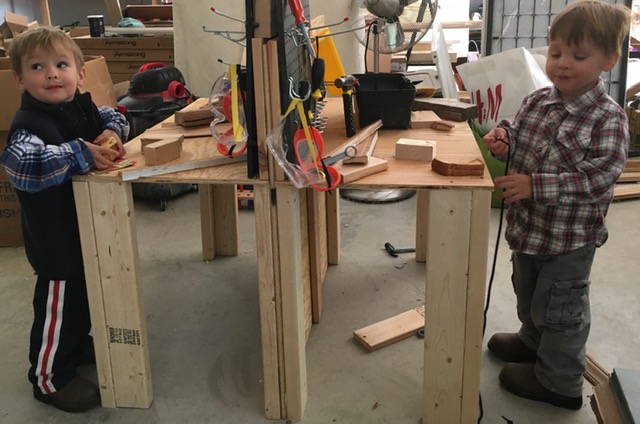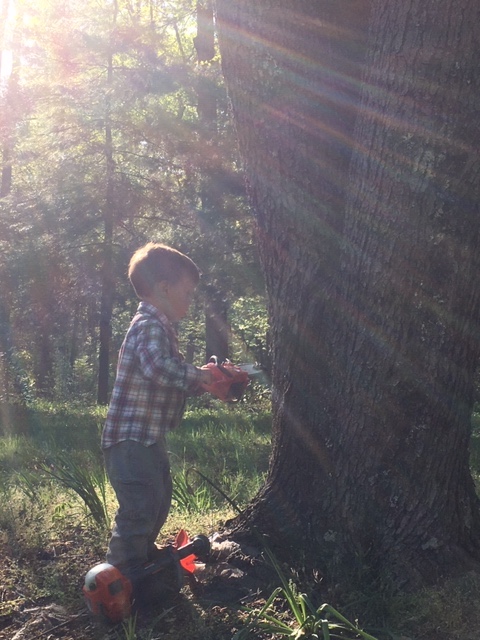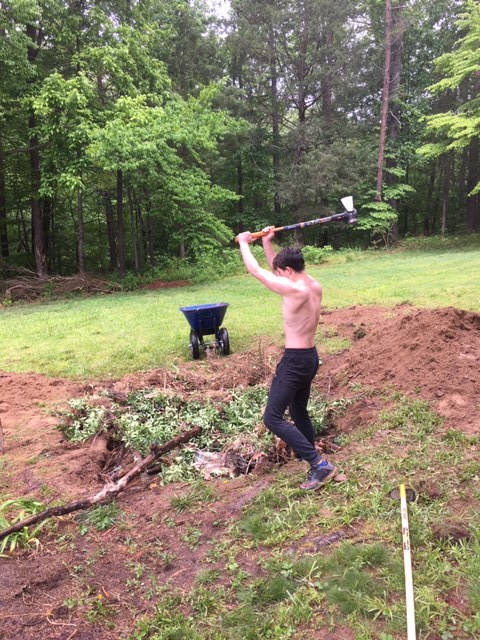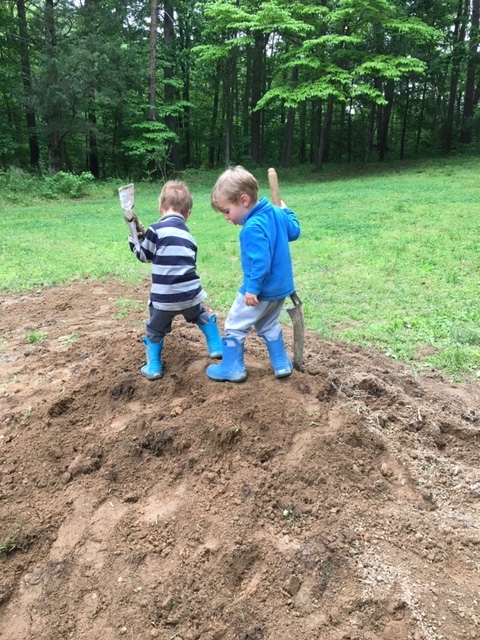I’ve been convicted repeatedly this week how deeply the desire for significant work is wired into our children. A few weeks back, inspired by a whole lot of scrap wood, I built a dual workbench for my youngest children. I did this because they’re always underfoot whenever I want to use my workbench.

They loved it for a few days. But eventually they realized their workbenches aren’t where they action is. Papa’s workbench is where wood gets cut and screws get driven.
Because their birthdays were upon us, we also got them miniature versions of their favorite tool: my Husqvarna chainsaw. These toys likewise took their attention for a few days, until they realized their saws were never going to cut anything, nor would their little weed eater do anything other than give the weeds a massage.

“Use your chainsaw, Papa,” they tell me, even though I was so sloppy with the last tree I took down that it yanked my chainsaw out of my hand when it fell, driving it blade-first into the dirt. I had to get one of my older sons to help me jack up the end of the tree and use a wedge and hatchet to free it. I felt literally unmanned. My kids of all ages thought it was a hoot.
I read an essay recently that’s stuck with me, in which the writer drew a distinction between the model of man our economists like to use, and the model of humanity most of us recognize as more genuine. The economists’ man is a lazy being who wants more and more stuff, at a lower and lower price, for as little work as possible. Maybe that describes too many of our teenagers, but it doesn’t describe our little ones, does it?
No, they come to us ready to work. They’re so primed for work that they won’t be sidetracked by phoniness. No little work benches and plastic chainsaws for them. No baby dolls and kitchen sets. They want to drive real nails, feed real babies, make real bread.

Which means so much more work for you and I, doesn’t it? And why does that discourage us? Ironically, because we’re so intent on getting real work done. It took me literally five times longer than normal to build two 8 x 4 garden boxes last month, because I had toddlers helping me saw the boards, paint them with linseed oil, stack and dry them, then cart them to the garden, level and square them, screw them together, fill them in. Anyone who’s ever supervised a three year-old driving a 3-inch deck screw understands how limited can be the patience of man.
But they are our work of creation, aren’t they? More than gardens or cleaning, home repairs or day jobs. And what a cruel trick we let the world play, when we pacify them with trinkets and distractions, all so we can get “real work” done. And then, when they’re 17, we marvel at how lazy teenagers are, as if we had no hand in that.
One of the habits we focus on during every Intentional Fathering cycle is bringing our children alongside us. Engaging them in our work. It’s so important, and the good news is that it yields fruit no matter what their ages. Our children—even our oldest ones—want work that matters. (It’s why so many of them hate school, but that’s a separate discussion.)
Our hearts rightly go out to adults who find themselves without work, or who get stuck in jobs with no visible connection to the creation of meaningful value in the world. That instinct for mercy is right. Let’s extend it to our children. Engage them in the work of our lives while there’s still time.
Fathers, this is our work: showing our children how to be creators, not just consumers.




